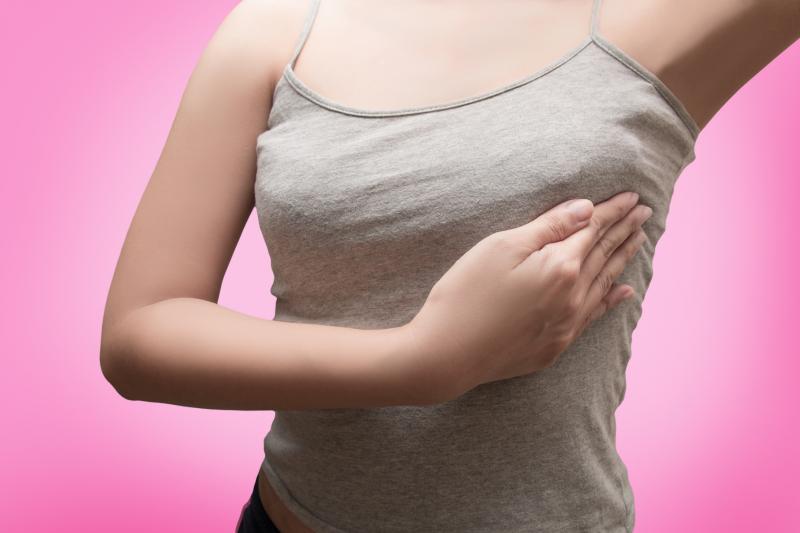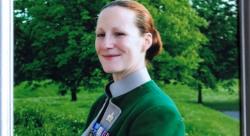Breast cancer is the most common type of cancer in the UK, so it’s vital for women to be checking their breasts regularly and thoroughly. However, recentresearch carried outby BupaUKand HCA Healthcare UKhas foundthat 1 in 4 British women (which is approximately 5.8 million!) are putting their health at risk by failing to check their breasts for any signs or symptoms.
Despite survival rates of nearly 100% if diagnosed at the earliest stage, more than 1in 5British women have admitted that they are unable to correctly identify allthe symptoms of breast cancer – and 2 in 5 said that they would delay visiting a doctor for medical help if faced with a symptom!
To ensure women across the UK are more clued up about their breast health, here, Miss Joanna Franks, Consultant Breast & Oncoplastic Surgeon at HCA Healthcare UKreveals thesigns and symptoms that we should be looking outfor on a regular basis, and the best ways to check for them.
“It’s really important for women to become familiar withhow theirbreasts look and feel, as this will help them to notice if any unusual symptoms ever appear.
Your breasts can change in line withyour hormones, so not all changes area cause for concern. For example, menopausal women may noticethattheir breasts areoftenless firm and softer to touch. Others may experience tender and lumpy breastsnear the time of their period, especiallyaround their underarms.
However, there are some changes which may not be linked to hormonal changes and therefore need further examination – as they couldbe a sign of breast cancer.The eight key signs of breast cancer which you need to look out for include:
1. A lump in the breast
2. A lump in the armpit
3. Nipple changes (such as a change to the shape or direction)
4. Discharge from the nipple
5. Change to size or shape of breasts
6. Change in skin texture (it may become dimpled or puckered)
7. Change in the colour of the skin (it may look red)
8. A skin rash (on or around the nipple)
To check your breasts for these symptoms thoroughly, there are a couple ofself-examination methods you can easily carry out at home – which take no time at all.
- Look at your breasts in the mirror:Lookat your breasts in the mirror with your shoulders straight and your arms on your hips. Then look at your breastsagainin the mirror, butwith your arms raised. Remember, you’re looking for any unusual changes to the shape of the breasts, nipples or skin.
- Feel your breasts lying down: Feelingyour breasts while lying down is a great way to identify any symptoms which may not be apparent on the surface of the skin– such as lumps in the breasts or armpit area. You can do this before you go to sleep whilst lyingin bed, or when you first wake up inthe morning. Using firm, small, circular motions, keeping yourfingers flat and together,feel your left breast with your right hand, and then use your left hand to feel your right breast.
- Examine your breasts in the shower:Self-examination in the shower can also be helpful, as the skin is clean and slippery, making it easier to spot irregularities.Be sure to cover the entire breast from top to bottom, side to side — from your collarbone to the top of your abdomen, and from your armpit to your cleavage.
Early diagnosis for breast cancer is so important, as it can prevent patients needing to undergo complex surgery and drug treatments. 90% of women diagnosed at an early stage will be alive and well five years post diagnosis however, this drops to just 15% for those diagnosed at a later stage.
At HCA Healthcare UK wehave recently teamed togetherwith Bupa UK to launch Specialist Centres for breast cancerin London and Manchester, which will give patients in these areas fasteraccess to diagnosis and care. We can offer all initial investigations within one appointment at one of our specialist breast clinics, and initial results will also be discussed on the same day, to hopefully offer peace of mind. However, if a patient does require further investigation then these will be carried out very quickly – with results received within two days.”
For more information contact HCAUK@thephagroup.com/ 020 7025 1363 / 07876 899 925
About HCA Healthcare UK:
HCA Healthcare UK is the country’s largest provider of privately funded healthcare, with 800,000 patient interactions every year. From complex and urgent care, to primary care, outpatient and day-case treatment, we provide expert medical care across our network of hospitals, outpatient facilities and NHS partnerships.
HCA Healthcare UK includes London Bridge Hospital, The Portland Hospital, The Harley Street Clinic, The Lister Hospital, The Princess Grace Hospital, The Wellington Hospital, Roodlane Medical Ltd, and Blossoms Healthcare. HCA UK also partner with leading NHS Trusts to provide care at The Christie Private Care, HCA UK at University College Hospital and Private Care at Guy’s.








